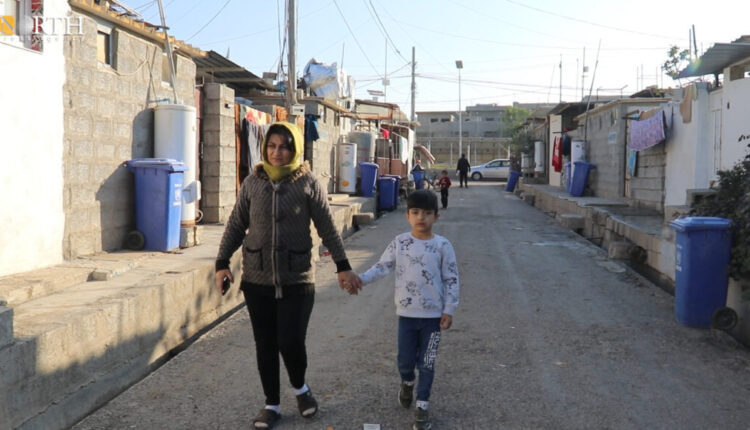
ERBIL, KRI, Iraq (North Press) – The young lady Lydia and her brother Muhammad are trying to relieve their pains by studying and drawing, but pain resulting from thalassemia that causes lack of red blood cells and needs weekly blood transfusions exhausted them and their family under hard refuge conditions and the difficulty to cope with the disease, which they have been suffering for fifteen years.
Lydia and Muhammad, two Syrian refugees living in the Qushtaba Refugee Camp in the city of Erbil, in the Kurdistan Region of Iraq (KRI), have been suffering from thalassemia since birth, forcing them to visit a hospital twice a mont for regular blood transfusions.
Rima Sheikhmous, their mother, said her children’s health has affected negatively their psychology and study “it is not a matter of a day or two, we have been visiting hospitals for years.”
Thalassemia is an inherited blood disorder characterized by the formation of abnormal form of hemoglobin, there is also not enough oxygen delivered to all the other cells of the body, which may cause a person to feel tired, weak or short of breath.
Treatment can either be through blood transfusion every two to four weeks that takes several hours, which is a safe and common procedure for thalassemia patients, or in severe cases, doctors resort to a blood stem cell transplant.
“We are trying to reach any humanitarian organization or anyone who can help us, we hold with us our papers and medical tests, hopefully we receive support or assistance, but we have not received anything,” Sheikhmous said.
The sheikhdoms’ family is not the only one struggling with this disease inside the camp, the child Khalat, who is not more than four years old, also visits the hospital twice a month for blood transfusion.
Rojin Khalil, Khalat’s mother, says her son’s health and psychological condition “is not good, he keeps asking my for how long I will keep going to the hospital.”
The mother said her child after the blood transfusion becomes tired, he tries to be alone in the room.
Khalil tries to ease her child’s pain so she invites children to play with him, “this disease has no treatment, and the only cure for patients with thalassemia is hematopoietic stem cell transplantation, it is expensive and needs a donor.”
The families of children with thalassemia hope that international organizations help them to alleviate acute symptoms of the disease and overcome the negative psychological impacts it causes to the infected people.
Although there is a dispensary inside the Qushtabe camp, its services do not cover thalassemia patients.
Sabah Suleiman, a medical assistant at the dispensary, said they provide everything possible to help the refugees, “but chronic diseases such as thalassemia cannot be treated inside the clinic, because patients require tests and blood transfusions, and we offer some medicines – if available – to patients for free.”
Patients with thalassemia inside the camp go to a hospital in Erbil for blood transfusions, so the dispensary has allocated a car to carry them to the hospital, it waits for them until three o’clock in the afternoon, and then returns them to the camp, according to Suleiman.
